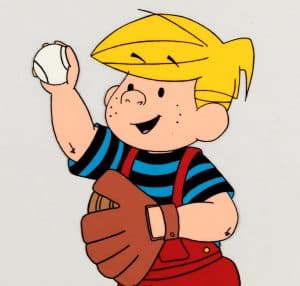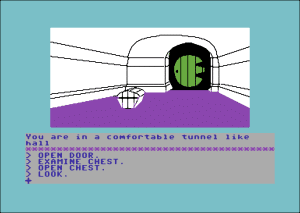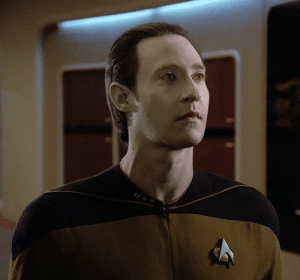Writing ~ The Very Beginning
Lately, I’ve been thinking about my writing journey – well, more than usual.
When you get to a point in your “career”, and you’ve struggled to make a meaningful impact, you think about the choices you’ve made, and what makes you the writer you are – or perhaps a better way of putting that is not the writer you’d hoped to be.
So I thought I’d chronologise my writing life, and be totally honest about it. In my head right now, that means some of it won’t be pretty.

Growing up, one of my older brothers got me into reading. It started with Dennis the Menace and Peanuts comics. Three- to four-panel comic strips are the perfect education of how the three-act structure functions: introduction, story, resolution.
Then it was things like The Adventures of Tintin, and Asterix. People might dismiss them as comics, but those books are wonderfully researched, built, and paced. Story-wise, they’re superior to the shit Hollywood peddle as the modern-day blockbuster, which often requires coincidence, contrivance, and sweet visuals to drive the haphazard plotting.
In primary school, I read lots. They had book clubs then, and I’d always order books. I loved reading – losing myself in the world of a story. I was always disappointed when a story didn’t speak to me the way the ones I loved did, and was always on the hunt for the next one that would.
Come 1982, my parents bought me a Commodore 64 – one of the first home computers. Games were simple and, by today’s standards, ugly. One of the groundbreaking games, though, was based on the novel The Hobbit.
The Hobbit was an adventure game – you’d get a picture of the location you were in, and a brief description. You navigated the game with simple text commands, like, “Go south”, or “Get sword”, or “Examine chest”. The Hobbit was lauded at the time for its text parser being more advanced than the norm.

Because I was a brat, I had to have it, and saved to buy it – $40.00, from memory. It came with the novel, which was my introduction to JRR Tolkien.
The story was entertaining, and different to most stuff I’d read. I was into sci-fi but hadn’t encountered high quest fantasy. It immediately fired my imagination.
Learning that there was a bigger adventure that followed it, I bought The Fellowship of the Ring that summer when I was sleeping at my cousin’s. I wasn’t sure what I expected. But I immediately grew engrossed, and gave my oldest brother the money to buy The Two Towers and Return of the King on his way home from work.
I talk often about The Lord of the Rings, and mention it in workshops I run – while I love the story, that’s not the reason I cite it. It’s the world-building. You have characters, locations, and events with lineage that go back millennia.
It’s beautiful how populated, and how detailed, that universe is.
This is one thing that irks the shit out of me – so many stories read like the characters did not exist before page one.

I’ll give you an example from a property I do like – the TV series Star Trek: The Next Generation. One of the crew members, Data, is an android, who’s 28 when the series begins.
As an android, Data has the computational ability of 60 trillion operations per second. He’s often shown speed-reading, and, in most ways, has a superior intelligence to the rest of the crew. But, as an android, he doesn’t understand human emotion – he’s meant to provide the commentary on human behaviour which is popular to Trek series (well, excluding the shit they’ve released since the JJ Abrams reboot in 2009).
One thing that happens regularly throughout The Next Generation’s original run is that Data’s stumped when a character uses proverbs – the character has to explain what the proverb means.
Given Data would’ve had to go through Starfleet Academy (the academy so he can become a crew member on a ship) and he’s twenty-eight when the series begins, surely he would’ve already encountered humans using proverbs.
In this case, the show treats Data like he never existed prior to the pilot episode. It’s a little thing, but it’s an example of what I mean about a character seemingly not existing prior to page one, even if the story gives them history.
There was none of that in The Lord of the Rings – it was such a lived-in universe, and so meticulous in it’s construction, that it taught me the importance of world-building in storytelling.
It might mean nothing to others (it certainly doesn’t in so many of today’s blockbusters and reboots and misguided franchises), but it’s something I consider paramount, and became the foundation of how I approached (and approach) writing.
